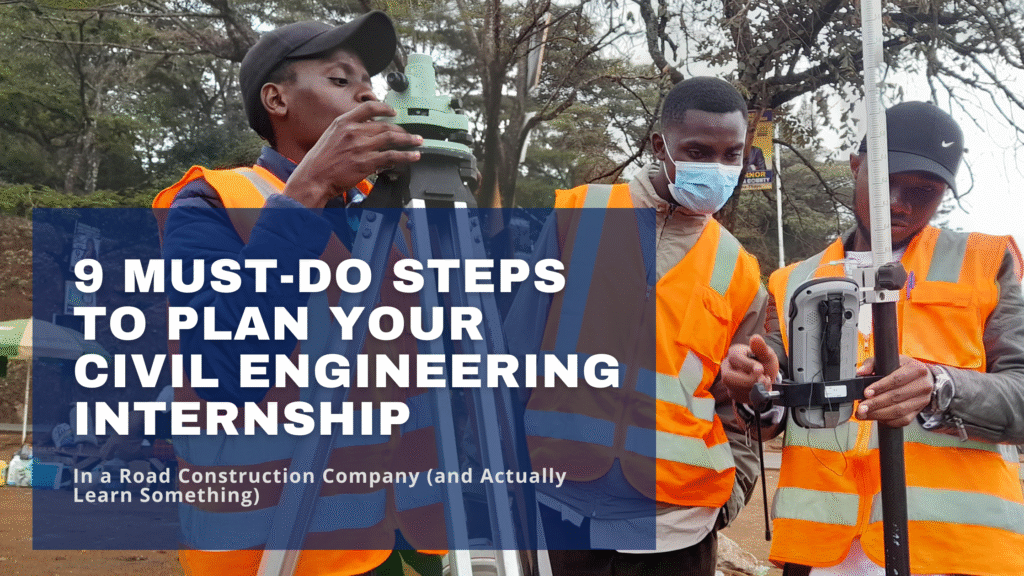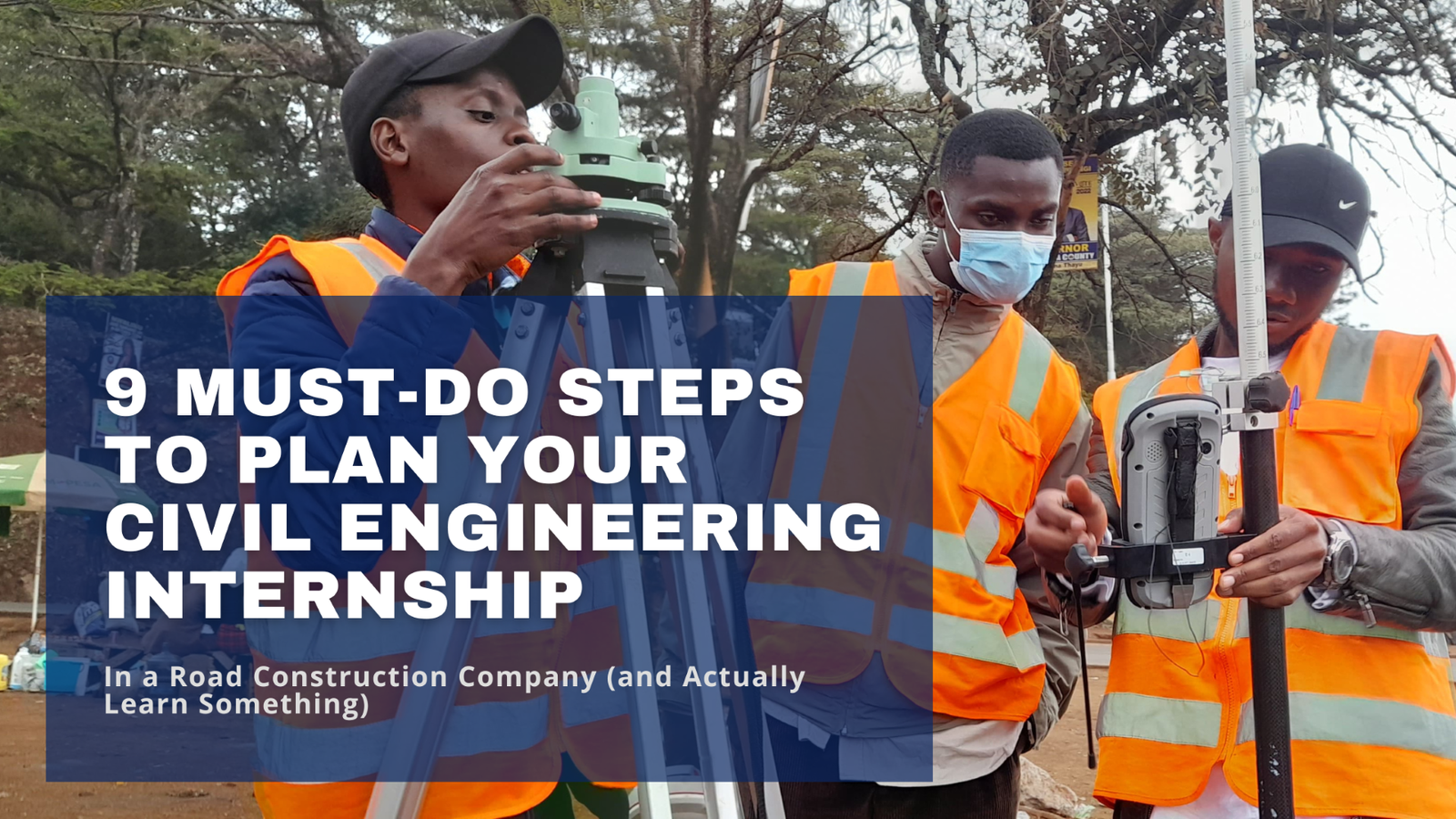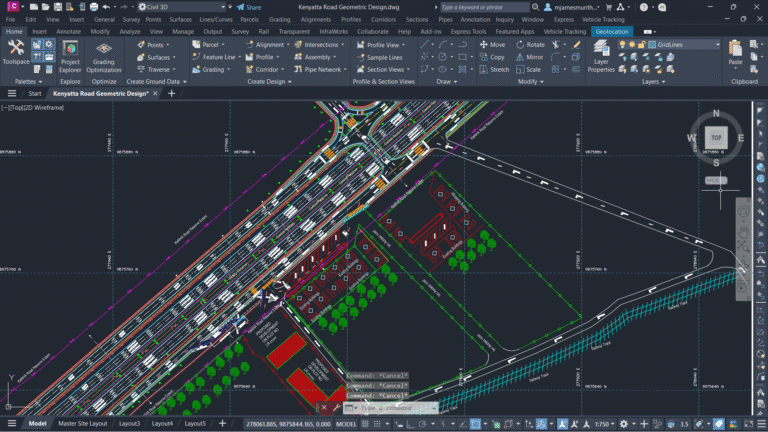9 Must-Do Steps to Plan Your Internship in a Road Construction Company (and Actually Learn Something)

Starting your road construction internship soon? Don’t waste it. This practical guide breaks down 9 steps to help interns plan, engage, and extract value from every week on-site. Learn how to stand out with clarity, purpose, and skills that stick.
Don’t Just “Do” Your Internship — Make It Count
Too many interns show up at road construction companies unprepared. Some don’t even have a notebook. No clue. No plan. They walk into massive learning opportunities… and walk out with nothing but selfies in hard reflective jackets..
But not you. You’re here to extract value.
To turn your road construction internship into a launchpad for your career.
And I’ve got your blueprint right here.
Step 1: Orientation Week — Map the Terrain
First impressions matter—not just theirs, but yours too.
In your first week:
- Observe everything: who does what, how the workflow runs.
- Listen more than you speak.
- Corporate power dynamics are real—spot them early. Know who is ‘calling the shots’
- Map out the departments: design, site, supervision, QA/QC, lab, and admin.
- Introduce yourself with intention. Let people know you’re here to learn and contribute.
Step 2: Pick a Project That Teaches You Something
Every construction site has multiple projects—some not very engaging with major works, some goldmines for interns.
- Identify a project that’s in the middle stage: not too early, not towards completion
- Spot the engineers leading it—introduce yourself, ask questions, request permission to shadow and assist in simple tasks.
- Carry out a self-appraisal: How can you bring value? Design work? Write minutes? Writing reports?
Pro Tip: This is how you earn their mentorship.
Step 3: Get Dirty with Surveys and Supervision
Start with the survey team. Don’t just stand around.
- Ask to hold the prism, help with marking, pegging, and learn how to use the equipment.
- Understand how site levels affect everything.
- Move into supervision roles: take measurements, fill log sheets, and track daily site activities.
- Learn how to do survey reports and quantities.
Pro Tip: Ask a lot of “why” questions. Not just “how.”
Step 4: Step into the Design Office
If your company has a design team, make your way in.
- Learn the workflows that convert drawings become actual roads.
- Learn what goes into alignments, cross-sections, profiles, and drainage layouts.
- Request to try Autodesk Civil 3D, AutoCAD, or Revit
- Sketch something. Annotate it. Then ask for feedback.
- Personal initiative: Go beyond what you are asked to do by working on personal projects
Pro Tip: Design is where you sharpen your technical edge. Don’t skip this.
Step 5–7: Rotate Through the Related Learning Zones (Departments)
Inspectorate
Attend daily site inspections. Learn how to record non-conformance, write memos, and take notes during meetings.
Materials Lab
Assist in collecting samples, including aggregates, testing bitumen, and preparing CBR tests. Analyze real results, not textbook data. Ask how they extract insights and do the reporting.
Site Office
Help draft site instructions, fill in daily reports, and compile records for compliance and handover.
These rotations are where interns either grow fast or get forgotten.
Step 8: Document & Reflect
Start writing your internship report early—don’t wait for the last week.
- Record what you’ve learned, not just what you did.
- Ask your supervisors for feedback on your performance.
- Request a recommendation letter—don’t assume they’ll offer.
Pro Tip: Mention specific tasks and skills in your letter request—it helps them write a recommendation letter that reflects your learning experience.
Step 9: Don’t Lose the Connection
Once your attachment ends, don’t vanish.
- Send a thank-you note to all engineers who supported your learning journey
- Ask to stay in touch for guidance.
- Offer to help on small tasks remotely—design reviews, writing reports, etc during your free time.
This is how you build your network.
Value flows to those who bring value first.
Remember, you’re not just “doing time” at a construction site. You are not doing it just to graduate. You’re preparing for a career.
Show up with:
- Clarity
- Intention
- Curiosity
And walk out with:
- On-site Experience
- Practical Skills
- Relationships that matter
If you found this valuable, drop a comment and share your thoughts.
You can register for upcoming virtual training classes for the following programs:

